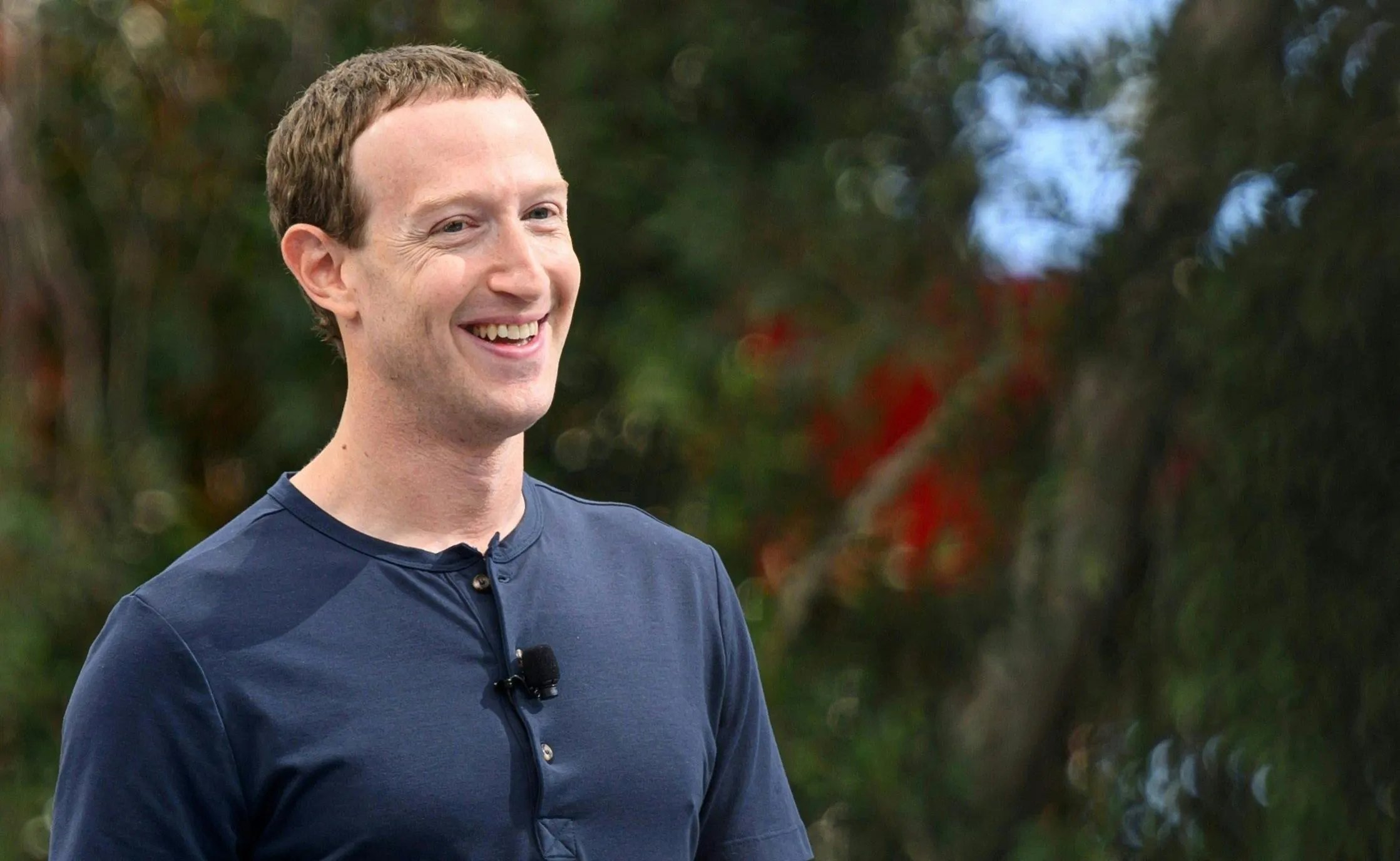If you thought **Mark Zuckerberg** was content with rebranding Facebook to Meta and building virtual worlds, think again. In 2025, he’s ramping up something far more ambitious—and for some, far more unsettling.
He’s chasing **godlike technology**, pouring untold billions into **Artificial Intelligence** that aims not just to serve people, but to _predict_, _shape_, and perhaps even _out-think_ them.

This isn’t about chatbots or productivity tools. It’s about creating a kind of **digital mind** that could rival human reasoning—an intelligence that learns, adapts, and improves at a rate no ordinary brain could hope to match.
And the world is watching.
### **The Billionaire’s Latest Obsession: Machines That Think Like Us**

**Meta’s CEO** has always liked big bets. But this one is different.
Sources inside Meta describe Zuckerberg as increasingly fixated on AI’s potential to become more than just software. He’s asked teams to design AI that can **“reason,” “anticipate human needs,” and “see patterns we miss.”**
It’s the kind of talk that would excite any technologist. But it also raises eyebrows—because it suggests a desire not just to build tools, but to create something approaching **cognition** itself.
In closed-door meetings, Zuckerberg has reportedly called this the next logical step for Meta—a way to make its products “indispensable” to daily life, woven into everything from your morning routine to your most private thoughts.
Critics say that’s exactly the problem.
### **Chasing the “Godlike” Edge**

It’s not just hype.
Insiders say Meta’s internal AI labs have quietly scaled to thousands of researchers. They’re exploring everything from **large language models** to **predictive behavioral analytics** so advanced they can forecast what a user might want before even asking.
One executive, speaking anonymously, described it this way:
> _“Mark wants AI that knows you better than you know yourself.”_
It’s the classic **Silicon Valley promise** turned threat. A machine that serves you perfectly—by learning you perfectly.
Zuckerberg reportedly sees this as a competitive edge Meta needs to stay on top. With competitors like **OpenAI, Google DeepMind**, and **Anthropic** grabbing headlines and funding, he’s pushing his teams to go faster, think bigger, and take risks.
### **Inside Meta’s AI War Room**
Meta isn’t short on cash.
After layoffs and restructuring, the company has funneled vast resources into its AI division. Billions of dollars are being redirected away from VR hardware and into training new models.
Leaked internal documents point to:
– **Proprietary chatbots** designed to be smarter, faster, and harder to trick than ChatGPT.
– **Customer service AI** able to handle nuanced, emotional conversations.
– **Generative tools** that can write, design, and even code on command.
But the most ambitious goal?
Creating **an AI assistant** so deeply integrated into your life that you couldn’t imagine living without it.
Zuckerberg has called this the **“personalized super-assistant”**. It would remember your schedule, manage your emails, curate your news, buy your groceries, and eventually even help you make life decisions.
### **More Than Convenience: Control**
That’s what has so many people worried.
Because when an AI knows you that well, it doesn’t just serve you. It shapes you.
Privacy advocates warn this is the ultimate form of data collection. Instead of simply tracking your clicks, Meta’s AI ambitions could involve understanding your moods, desires, and fears in real time.
As one industry analyst put it:
> _“Zuckerberg doesn’t just want to read your mind. He wants to help write it.”_
### **A Race He Can’t Afford to Lose**
Meta’s rivals are moving at breakneck speed.
**OpenAI’s GPT models** dominate headlines with their viral breakthroughs. Google’s **Gemini** project promises unmatched reasoning and creativity. Startups across the world are building vertical AI tools for everything from legal work to therapy.
For Zuckerberg, catching up isn’t enough. He wants to leap ahead.
He’s betting that Meta can do what others can’t: scale AI globally through its social network and devices.
With **WhatsApp**, **Instagram**, **Facebook**, and the **Quest VR platform**, Meta has an unprecedented user base to feed its models and test new products.
It’s a feedback loop like no other.
### **Marketing the Future: From Dystopia to Utopia**
Zuckerberg’s public messaging, meanwhile, is all optimism.
He’s spoken of **AI for good**—tools that help people learn, connect, and create. Meta’s PR describes its mission as “empowering individuals” and “democratizing access to knowledge.”
Yet even those who admire his vision admit the marketing sounds a little too clean.
After all, this is the same company that once vowed to **“bring the world closer together”**—only to be accused of enabling disinformation, polarization, and privacy abuses at historic scale.
It’s fair to ask: If Meta’s past promises fell short, why should the world trust it to build **godlike AI** responsibly?
### **Critics Sound the Alarm**
Not surprisingly, the backlash has already begun.
Prominent AI ethicists warn that Meta’s push for superintelligent systems could **outpace regulation** and safety research.
Some ex-employees describe an internal culture that prizes speed over caution—a familiar refrain in tech, but especially alarming when dealing with powerful AI.
Privacy watchdogs say Meta’s record should disqualify it from leading the AI charge.
> _“It’s not about whether the tech is impressive,” says one critic. “It’s about who controls it.”_
And with Zuckerberg reportedly more hands-on than ever—personally reviewing roadmaps and pushing teams to iterate quickly—some worry Meta will prioritize **market dominance over moral responsibility**.
### **The Superintelligence Arms Race**
Of course, Zuckerberg isn’t alone.
Big Tech as a whole is in an **AI arms race**, one that has governments scrambling to keep up.
– **Google** is building ever-larger, ever-smarter models.
– **Microsoft** is integrating AI across its empire with OpenAI’s help.
– **Apple** is rumored to be quietly preparing its own AI bombshells.
No one wants to be left behind.
But Zuckerberg seems particularly determined not just to compete, but to **win**.
Some insiders see it as his chance to define his legacy. After years of bruising scandals and declining user trust, leading the AI revolution could recast him as a visionary.
Or it could cement him as the **most controversial figure in technology**.
### **Final Thought: Playing God in a Digital Age**
Whether you find it inspiring or terrifying, it’s clear Mark Zuckerberg isn’t content with being a social media mogul.
He wants to be remembered as the man who built **something like a mind**—a digital intelligence that could one day shape the way billions of people think, work, and live.
He calls it progress. Critics call it **hubris**.
But one thing is certain:
**The AI race isn’t slowing down.**
**It’s speeding up.**
And with every billion Zuckerberg invests, the question grows louder:
Is he building the next great tool for humanity—
**or the ultimate lever of control?**
